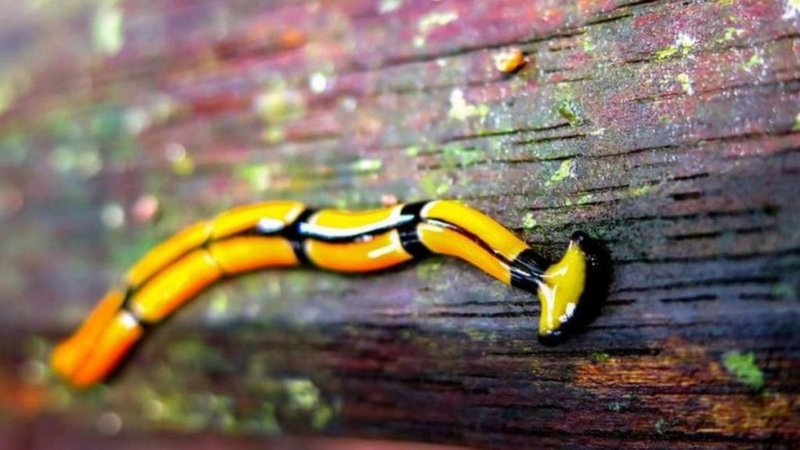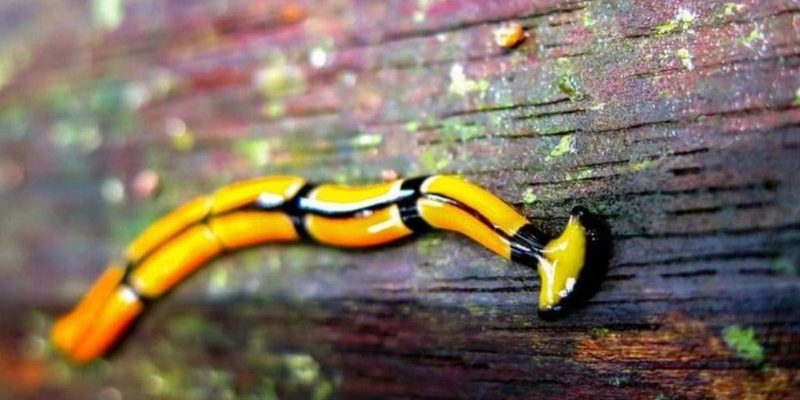
So, what exactly are hammerhead worms? Imagine a creature with a flat, ribbon-like body, topped with a distinctive head that resembles a hammer. They’re not just a nuisance; these worms are voracious carnivores, feeding on other worms and soil organisms, which can disrupt the ecosystem. The good news? Various natural predators are experts at keeping these hammerhead worms in line. In this article, we’ll explore some of the best natural predators that help control hammerhead worm populations, ensuring your garden remains healthy.
Understanding Hammerhead Worms
Before diving into the natural predators, it’s helpful to get a clearer picture of these hammerhead worms. They belong to the **Bipalium** genus and are often found in tropical and subtropical regions. These worms can grow quite large, with some species reaching up to 12 inches long! Their unique hammer-shaped heads are not just for show; they help them hunt and consume other invertebrates.
Hammerhead worms are primarily nocturnal, which means they come out at night to hunt. This behavior can make them tricky to spot, but they can be identified by their flattened bodies and distinctive heads, usually adorned with vibrant colors. Here’s the thing: while they may look interesting, their presence in your garden is usually a sign of an imbalanced ecosystem.
The Role of Natural Predators
Now that you know a bit about hammerhead worms, let’s discuss the role of natural predators in managing their populations. When we talk about natural predators, we’re referring to organisms that help keep the hammerhead worm numbers in check without the need for chemicals or pesticides. Think of these predators as nature’s own pest control team.
These predators can help maintain the ecological balance, allowing your garden to thrive. Without these natural checks and balances, hammerhead worms can multiply rapidly, leading to soil degradation and harm to other beneficial organisms. It’s fascinating how the circle of life works, isn’t it?
Common Natural Predators of Hammerhead Worms
Several creatures play a direct role in keeping hammerhead worms at bay. Here’s a closer look at some of the most effective natural predators:
- Ground Beetles: These small, predatory insects are essential for controlling various pests in the garden, including hammerhead worms. They have strong mandibles that can crush their prey, and their keen sense of smell helps them locate worms hiding in the soil.
- Frogs and Toads: Amphibians like frogs and toads are voracious hunters. They consume hammerhead worms when they come across them in their foraging. Their presence in your garden is not only charming but also beneficial for pest control.
- Birds: Some bird species, like robins and other ground-foraging birds, include worms in their diet. They play a crucial role in eating hammerhead worms, especially in gardens where these pests are prevalent.
- Ants: Certain ant species are known to prey on hammerhead worms. Ants are incredibly efficient hunters; they work together to capture and consume these pests, helping to reduce their numbers.
These natural enemies are excellent allies in maintaining the health of your garden ecosystem.
Encouraging Natural Predators in Your Garden
If you want to help control hammerhead worm populations naturally, consider encouraging these natural predators to thrive in your garden. It’s easier than you might think! Here are a few tips:
1. **Create a Diverse Habitat:** Plant various flowers and shrubs, which will attract different species of beneficial insects and animals.
2. **Minimize Pesticide Use:** While it might be tempting to reach for pesticides, they can harm the very predators you want in your garden. Try using organic methods instead.
3. **Provide Shelter:** Create hiding spots using leaves, logs, or stones. This gives predators a safe space to rest and breed.
By fostering an environment where these natural predators can thrive, you’ll promote balance in your garden and help keep hammerhead worms in check.
The Impact of Soil Health
Soil health plays a critical role in the battle against hammerhead worms. The more diverse and balanced your soil is, the more likely you are to support a host of beneficial organisms. Here’s why it matters:
– **Biological Activity:** Healthy soil teems with microorganisms, fungi, and other organisms that can outcompete or predate on hammerhead worms.
– **Enhanced Nutrients:** A nutrient-rich soil encourages plant health, which can make your garden less susceptible to pests.
– **Water Retention:** Well-structured soil holds moisture better, which can create an inhospitable environment for hammerhead worms.
Investing in soil health is not just a good idea; it’s essential if you want to create an ecosystem that thrives.
Controlling hammerhead worms is a team effort—one that relies on a network of natural predators to keep their numbers in check. From ground beetles to frogs, each predator plays a crucial role in maintaining balance in your garden.
By understanding these natural allies and taking steps to encourage them, you’re not just protecting your garden; you’re also participating in a beautiful cycle of nature. So, the next time you spot a hammerhead worm, remember that nature has its own way of keeping things in balance. Embrace these natural predators and watch your garden flourish!

